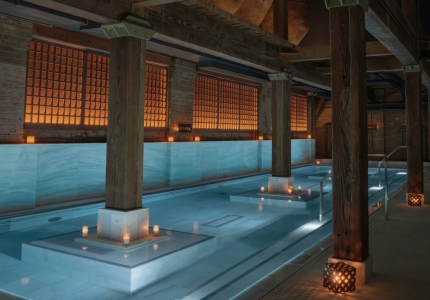A good night's sleep is vital for maintaining health and overall well-being. However, many people struggle to achieve the deep, restorative sleep they need to function optimally. One of the most effective ways to improve sleep quality is through relaxation rituals. These practices help prepare both the body and mind for rest, promoting a state of calm that encourages better sleep. In this guide, we’ll explore why relaxation before bed is essential, how thermal baths can enhance your nighttime routine, and how to design a personalized relaxation plan for restful nights.
Why Relaxation Before Bed is Essential for Deep Sleep
Stress and a racing mind are among the biggest culprits for poor sleep quality. When your body is flooded with cortisol—the stress hormone—it becomes harder to relax and drift into a deep sleep. This is where relaxation before bed comes into play. Engaging in calming activities before sleep helps lower cortisol levels and other stress-related hormones, creating ideal conditions for a peaceful slumber.
Relaxation techniques signal to your brain that it’s time to wind down, helping to ease the transition from wakefulness to sleep. Without this preparation, lingering stress can prevent you from reaching deeper stages of sleep, leading to fatigue and irritability the next day.
By incorporating simple yet effective rituals into your nightly routine, you can promote a state of tranquility that improves not just how long you sleep, but how well too. Exploring relaxation techniques to find practices that resonate with your lifestyle is also great to improve the routine.
The Role of Thermal Baths in Improving Sleep Quality
Thermal baths have been used for centuries as a medium for relaxation and rejuvenation, and they can play a significant role in enhancing sleep quality. Immersing your body in warm water helps relax tense muscles, improve circulation, and lower stress levels—all of which are essential for preparing the body for rest.
The heat from a thermal bath increases your body temperature just a little. Once you step out, your body begins to cool down, mimicking the natural temperature drop that happens as you fall asleep. This physiological effect makes it easier to enter into a deep and restful sleep.
Incorporating a soothing thermal bath into your nighttime routine can also provide a mental reset, allowing you to let go of the day’s stresses. For added relaxation, consider creating a spa-like atmosphere at home with candles, calming music, and a few drops of essential oils.
How to Create a Sleep-Inducing Nighttime Routine
Building a consistent night-time routine is one of the most effective ways to train your body and mind to relax before going to bed. Follow these practical tips to create a routine that promotes restful sleep:
-
Set a consistent bedtime: Going to bed and waking up at the same time each day helps regulate your internal clock.
-
Avoid screens before bed: The blue light from phones, tablets, and TVs can disrupt your natural sleep cycle. Aim to disconnect at least an hour before bedtime.
-
Practice deep breathing or meditation: Techniques like diaphragmatic breathing or a quick guided meditation can calm your nervous system.
-
Create a relaxing environment: Dim the lights, use blackout curtains, and ensure your room is quiet and cool.
-
Limit stimulants: Avoid caffeine and heavy meals in the evening. Instead, opt for calming herbal teas like chamomile or lavender.
By incorporating these habits, you can create a personalized sleep-inducing routine that makes falling asleep and staying asleep much easier, and helps to disconnect effectively in daily life.
A Unique Approach to Sleep and Deep Relaxation
Improving sleep quality often requires a combination of traditional and modern techniques. Here are some innovative and time-tested methods to enhance relaxation and promote deep sleep:
Essential oils like lavender, chamomile, and sandalwood can create a calming atmosphere and ease you to sleep. Diffuse these scents in your bedroom or add them to your bath for a multi-sensory experience.
Meditation and mindfulness:
Practicing meditation or mindfulness exercises before bed can quiet a busy and stressed mind and reduce stress. Guided meditations specifically designed for sleep are widely available online.
Soundscapes:
Listening to soothing sounds like rain, ocean waves, or white noise can help block out distractions and create a peaceful ambiance.
Progressive muscle relaxation (PMR):
This technique involves tensing and then relaxing each muscle group, starting from your toes and working upward.
These methods can be combined to create a unique approach to sleep that caters to your preferences. By integrating various relaxation tools, you’ll enjoy a more effective and holistic path to better rest.
Sleep is the cornerstone of good health, and improving its quality doesn’t have to be complicated. By adopting relaxation rituals for sleep, such as taking thermal baths, practicing mindfulness, or creating a calming bedtime routine, you can significantly enhance your ability to rest deeply and wake up refreshed.
Whether you’re looking for quick fixes or a comprehensive approach, the strategies outlined here provide practical solutions for achieving the restorative sleep you deserve. Start small by introducing one or two changes to your nightly routine and build from there. Over time, these practices will become almost second nature, transforming your nights into a time of true renewal.



